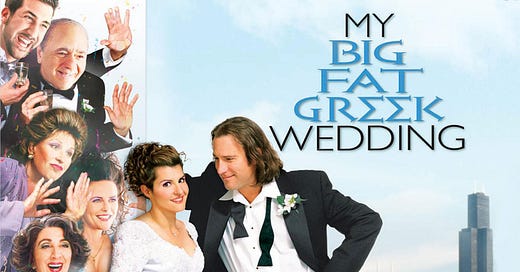"My Big Fat Greek Traditions": Values, Cultural Preservation, and the Primacy of Family in Modernity
I sat down and watched My Big Fat Greek Wedding with my wife recently and was surprised at how the film handles the themes of marriage, culture, and family in a positive light. The film highlights the clash between traditional Greek values and contemporary ideals, emphasizing the enduring importance of culture, heritage, and strong familial ties in shap…





